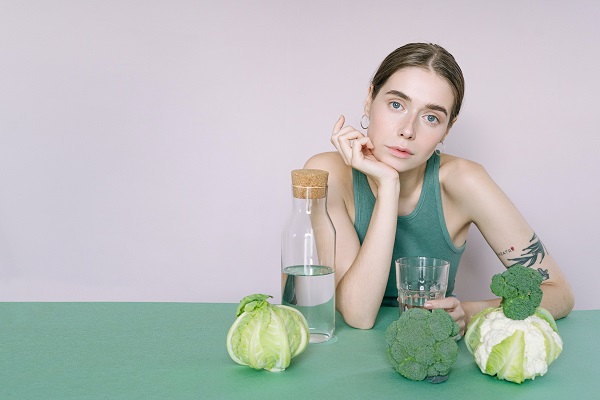
Worst Foods For Bloating
Here are some worst foods for bloating –
What bloating means?
Bloating is the feeling of having a full and tight belly. Bloating is a very common condition and several factors may cause it like constipation, overeating, weight gain, and swallowing air.
Furthermore, Some conditions may irritate your gut and cause bloating:
- Irritable bowel syndrome (IBS)
- Small bowel bacterial overgrowth
- Gastroesophageal reflux disease (GERD)
- Gluten or lactose intolerance
- Celiac disease
- Ovarian Cancer
Some Foods can cause bloating as well. Do you feel bloated after meals? If Yes then you should start looking into the types of foods you are consuming. Here are some worst foods for bloating.
Legumes:
Peas, Beans, soybeans, and lentils are some gas-causing foods. You may know that these foods are rich in protein, but they also contain sugars and fibers that the body can not absorb. So may cause bloating.
The solution to this problem lies in combining legumes with other easily digestible grains like quinoa or rice and consuming plenty of water. In time, your body will get used to high-fiber foods which may ease these symptoms.
If you eat fruits, vegetables, nuts, whole grains, and beans regularly, they won’t cause as much discomfort as they would if you only eat them occasionally, Said our Dietitian.
Cruciferous Vegetables:

Vegetables like cabbage, broccoli, and kale are cruciferous and contain raffinose (A sugar known to cause gas and bloating). Eating them regularly over a period of time could be beneficial.
Regularly eating healthy foods that are high in fiber and nutrients can help your digestive system work better and reduce the likelihood of bloating. So, Keep on having green veggies. To help with digestion, You can cook and steam the veggies, Because, when a vegetable is cooked, its fiber is softened and it also loses some water content, causing it to shrink in size. As a result, it occupies less space in your gut. This will not completely eliminate bloating but can make it easy to digest the veggies.
Apples:
The Apples are rich in fiber and also contain sorbitol and fructose (sugars some people can’t tolerate) which can lead to gas and feeling bloated. Apples are a healthy snack so try not to completely wipe them out from your eating list. As eating apples can help you keep your heart healthy and reduce the risk of having problems with breathing, such as asthma, bronchitis, and emphysema.
Dairy:
You may be lactose intolerant if you feel gassy after consuming dairy products. People who are lactose intolerant don’t have the necessary enzyme (lactase) to break down lactose (the sugar present in dairy). So in this condition consuming dairy can lead to a gassy feeling and may trigger bloating. So try to stay away from dairy products and choose alternatives. You can try using lactase tablets like Lactaid. These tablets can help your body digest lactose so you can eat dairy products without feeling sick.
Salty Foods:
Consuming Sodium rich diet can cause water retention, which may make you bloated.
The recommended sodium intake is:
- 2300mg per day for adults
- 1500mg per day for older adults (above 50 years of age) and adults with high B.P. and Diabetes
Processed and packaged foods often contain a lot of sodium, which can be hard to avoid. Even fast food can be surprisingly high in salt. To manage your sodium intake, check the nutrition labels and look for low-sodium options. If you end up eating a lot of salty food, you can drink more water to help get rid of the excess salt.
FODMAP Foods:
Some foods are quite rich in carbs, which can cause an excess of gas and your stomach a little tighter. The reason behind this is that your gut can’t digest the carbs in these foods. These carb foods are called FODMAP foods (fermentable oligosaccharides, disaccharides, monosaccharides, and polyols). The carbs in these foods are not entirely absorbed in the small intestine. These undigested carbohydrates can cause bloating by accumulating and attracting excess gas and liquid.
Here are some examples of these foods (High FODMAP):
- Onions
- Watermelon
- Beets
- Peaches
- Apricots
- cherries
- Artichokes
- Peas
Foods Containing Gluten:
Gluten is a protein found in wheat, barley, and rye. In people with celiac disease, gluten triggers an autoimmune response (the condition in which the body’s immune system attacks itself). Some people may be sensitive to gluten but don’t have celiac disease. This is called non-celiac gluten sensitivity. People with gluten sensitivity or celiac disease can experience gut issues including bloating as well.
Onions & Garlic:
Garlic and onions contain soluble fibers called fructans. Our body is not very good at digesting these fructans, which may cause gut issues. Some people are intolerant to fructans. Similar to non-celiac gluten sensitivity, when fructans ferment in the bowels, they can draw water into the colon, leading to bloating and gas.
Watermelon:
Fruits with high fructose content can cause bloating. Fructose is sugar that is not easily digested in the body and can cause bloating and gas. Watermelon is rich in fructose and contains 10g in a slice.
Some people may have conditions like fructose malabsorption or fructose intolerance. These conditions can lead to bloating if one consumes fructose. High fructose foods can worsen the symptoms of IBS as well.
Here are some fruit options with lesser fructose:
- 1 avocado has 0.1 g of fructose
- 1 cup of blackberries has about 4 g of fructose
- 1 has about 3g of fructose
People Also Read: 4 signs you have lactose intolerance

Leave a Reply